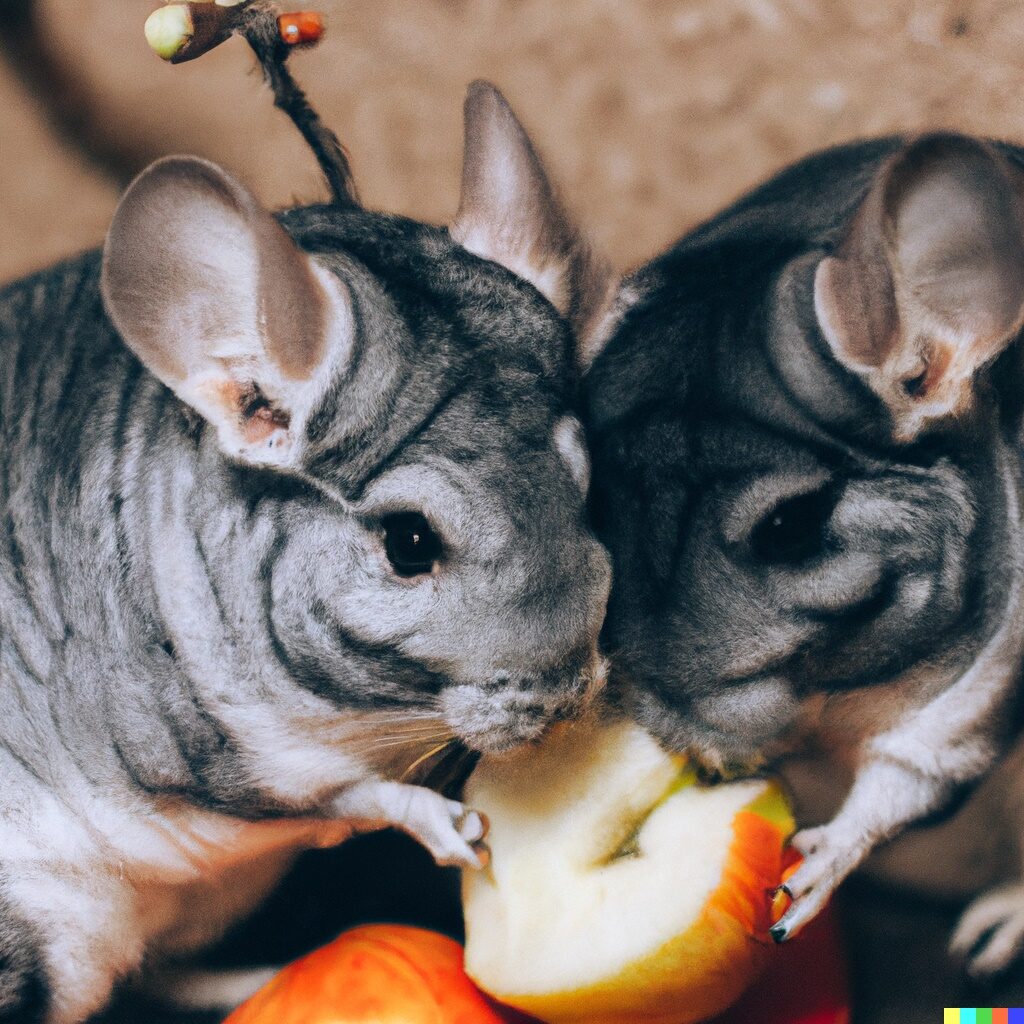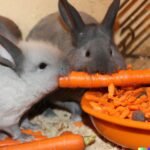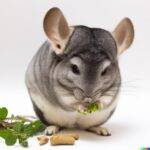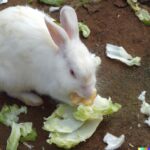Yes, chinchillas can eat apples in moderation. Apples are a good source of vitamins, minerals, and fiber, and they can provide a healthy snack for your chinchilla. However, it is important to feed them in moderation due to the high sugar content in apples. Too much sugar can cause digestive upset and diarrhea, so it is best to give your chinchilla only a small piece of apple once or twice a week. You should also remove the core, seeds, and stem before feeding the apple to your pet.
Have you ever wondered if your beloved chinchilla can eat apples? It’s a common question that many pet owners have. Apples are actually an excellent source of vitamins and minerals for chinchillas – but there are potential risks as well. Let’s explore the surprising benefits of apples for chinchillas, as well as any possible risks associated with them.
Can Chinchillas Eat Apples?
Nutritional Benefits of Apples for Chinchillas
Apples are a delicious and nutritious food that can be added to the diet of chinchillas. This fruit contains many essential vitamins and minerals that make it an ideal part of a balanced, healthy diet for these animals.
Vitamins
Apples contain several important vitamins including vitamin C, which plays an important role in maintaining the immune system. Vitamin A is also found in apples, and helps with vision health as well as providing antioxidant protection from free radicals. Apples also contain B-complex vitamins such as thiamin, riboflavin, niacin, pantothenic acid, vitamin B6 and folate – all of which help to regulate metabolism and provide energy throughout the day.
Minerals
In addition to their high content of beneficial vitamins, apples are also packed with essential minerals like calcium for bone strength; phosphorus for tooth enamel; magnesium for nerve function; potassium to regulate blood pressure; iron needed for red blood cell production; zinc required for wound healing; copper necessary for digestion processes; manganese essential in forming connective tissues like cartilage joints and collagen fibers – all critical components of any chinchilla’s health regimen!
Fiber Content
Perhaps one of the most beneficial aspects about adding apples into your chinchilla’s diet is their high fiber content: soluble dietary fibers act like sponges by binding together with water molecules inside the digestive tract allowing them to pass unhindered through its walls while simultaneously absorbing toxins along their way out! This makes them excellent agents at promoting regular bowel movements – something that every pet owner should strive towards when caring for their beloved critter! Furthermore apple pectin has been shown to lower cholesterol levels too so if you’re looking after a diabetic or overweight chinchilla then this could prove invaluable in helping manage those conditions better over time.
Types of Apples Safe for Chinchillas
Chinchillas are small, friendly rodents that require specialized diets to remain healthy. Apples can be a great addition to a chinchilla’s diet, but there are certain types of apples that should not be eaten by these animals. The following is a guide to the different kinds of apples safe for chinchillas and how they can benefit their health.
The most common type of apple safe for chinchillas is the Red Delicious variety. This apple has a sweet taste and contains vitamins A, B6 and C as well as dietary fiber and antioxidants. It also provides important minerals such as potassium which helps regulate heart rate and blood pressure in your pet. Since this type of apple is easily available in supermarkets all over the world, it makes it an ideal choice for owners looking to give their pets something special without having to go out of their way.
Gala apples are another kind that can provide many benefits for your chinchilla’s overall well being when consumed in moderation due its high amounts of sugar content . Gala apples contain vitamin C which helps strengthen bones , teeth and muscles .
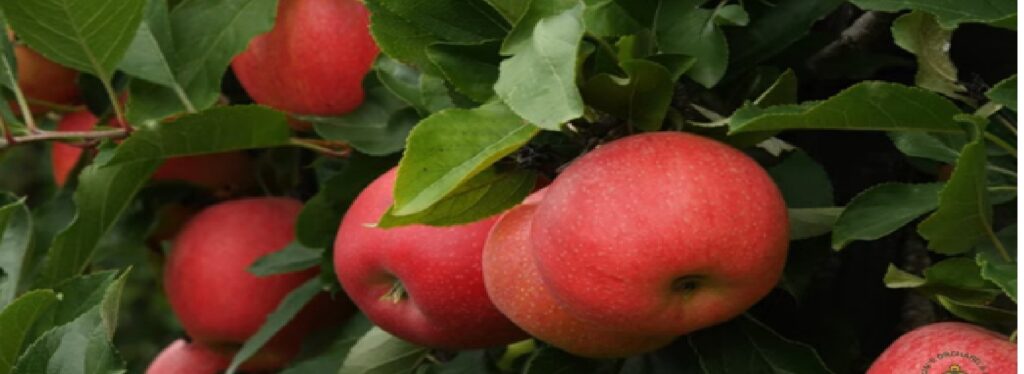
Additionally , this type also contains dietary fiber which aids digestion . Akin to red delicious , gala varieties are widely available worldwide making them convenient options for pet owners who want something special without breaking budget or going far from home .
Granny Smith Apples make up another group considered safe for consumption among these furry critters since they have low sugar levels compared with other varieties while still providing ample amounts of Vitamin C along with dietary fiber like mentioned above .

When consumed regularly in moderate portions granny smith may help reduce bad cholesterol levels while helping improve digestive functions on top aiding metabolic processes within the body too making them valuable assets amongst snacks provided by responsible owners everywhere !
In short, any kind of apple chosen must always be washed thoroughly before being given raw or cooked so bacteria don’t harm our beloved creatures’ health! As long as you keep these guidelines in mind then Red Delicious, Gala & Granny Smith will make excellent additions into your pet’s daily routine!
Preparation Guidelines for Feeding Apple to Chinchillas
Food Quality
When it comes to preparing food for chinchillas, quality should always be the top priority. Apple is a great source of dietary fiber that helps keep your pet’s digestive system running smoothly. When purchasing apples for your chinchillas, look for ones without bruises or blemishes and preferably organic if possible. If you are unsure about which type of apple to buy, consult with a veterinarian who specializes in small animals such as chinchillas.
Washing and Cutting Apples
Once you have purchased fresh apples to feed your pet chinchilla, it is important to wash them before feeding them to ensure no contaminants on the skin may harm your furry friend. Using warm water and a mild soap, gently scrub each apple until clean and then rinse them off with cool water or even better an organic fruit & vegetable wash if available. Afterward, cut up the apples into small bite-sized pieces so they will fit easily into their mouth when fed by hand or placed in their bowl during mealtime. Be sure not to make them too small as this can present choking hazards which could lead to serious health issues down the road.
Storage Options
If you plan on having longer-term storage options for extra apples after washing and cutting them up prior to giving them out as treats throughout the week – simply place chopped up apple pieces in an airtight container or Ziploc bag along with some lemon juice sprinkled overtop (optional) before putting it away in the refrigerator where they will stay good for several weeks at a time! Additionally – since these fruits contain natural sugars – freezing excess amounts can also be done but make sure that all frozen chunks are completely thawed out first before serving any piece of frozen apple back into your pet’s diet again!
Signs of an Unhealthy Reaction to Eating Apple
Eating apples can be a delicious and healthy snack, but it is important to watch out for signs of an unhealthy reaction. People with certain allergies may experience uncomfortable symptoms after eating apples, including rashes or hives. Additionally, some people may have difficulty digesting apple skins due to the presence of insoluble fiber. In both cases, these reactions are not typically life-threatening but should still be taken seriously and monitored closely by a doctor or medical professional.
The most common sign of an allergic reaction to apples is itching or swelling in the mouth and throat area as well as skin rashes on parts of the body that have come into contact with the fruit itself or its juices. If you experience any kind of discomfort when consuming raw apples or its products such as juice, cider, etc., it is best to discontinue consumption immediately and seek medical attention right away if necessary. Itching eyes and sneezing might also occur in more severe cases.
For those who do not suffer from allergies but find themselves having difficulty digesting whole apples (with their skins intact), this could indicate digestive issues such as irritable bowel syndrome (IBS). Symptoms include bloating, gas pain, constipation/diarrhea etc., all which can be easily treated under the supervision of a qualified physician using dietary changes such as avoiding problem foods like high-fiber fruits like apples until digestion improves over time naturally
Possible Risks Associated With Feeding Apple to Chinchillas
Chinchillas are small, furry and undeniably adorable animals that make great pets. They require a diet of hay, pellets and some fresh vegetables, including apples. However, while apples can be a delicious treat for chinchillas it is important to understand the risks associated with feeding them this fruit.
Gastrointestinal Issues
The biggest risk in giving your chinchilla an apple is gastrointestinal upset due to its high sugar content. The sugars found in apples can cause an imbalance in their digestive system which may lead to bloating or diarrhea, both of which could have serious consequences on their health if left unchecked. It’s best to limit the amount of apples your pet receives as well as watch out for any changes in behavior when offering new foods such as this one so you can take action quickly if needed.
Potential Allergies
Just like humans, chinchillas may also suffer from allergies when introduced to certain foods including apples. If your chinchilla experiences any unusual reactions after eating it such as sneezing or itching then you should stop feeding them immediately and contact a veterinarian for further advice .This will help ensure that they don’t experience any long-term damage from allergic reactions to food items like this one!
Dental Health
Chincahillas teeth grow continuously throughout their lives so it is important that they are able crunch hard objects regularly in order keep them healthy and at the correct length – otherwise misalignment issues can occur leading to pain or even lost teeth! Apples contain more fiber than other fruits but not enough hard material necessary for grinding down their molars – meaning there’s no dental benefit from consuming this fruit despite its sweetness!
Frequency Recommendations For Feeding Apples To Chinchillas
1. Apples are a popular snack for chinchillas, and can provide your pet with important vitamins and minerals. Apples contain vitamin C, which is essential for keeping their immune system healthy; they also provide dietary fiber to help digestion and promote regular bowel movements. However, it’s important to know how often apples should be fed to your chinchilla to ensure optimal health. The general recommendation is that you feed apples no more than once per week due to the high sugar content in apples. Too much sugar can lead to weight gain or dental problems like cavities in your chinchilla.
2. When feeding apples, make sure they are diced into small pieces so that your pet can easily eat them without choking on the chunks of apple flesh. Be mindful not to overfeed as this could cause digestive issues such as diarrhea or an upset stomach for your chinchilla – if you notice any signs of illness after giving them an apple treat then cut down on the frequency at which you give them these treats! Additionally, don’t forget about other snacks such as hay cubes and alfalfa pellets – both of these foods should always be available in addition to occasional treats like apples!
3.When introducing new fruits or vegetables into a chinchilla’s diet it’s best practice starts off slow by offering just a few pieces at first before increasing the amount over time – this helps prevent too many changes all at once from upsetting their delicate digestive system. Additionally when selecting fresh fruits and vegetables only go for ones that have been organically grown with no pesticides used during production (as these chemicals may harm your pet). Finally, always check with a veterinarian before making any drastic changes in food selection or frequency so they can monitor potential adverse reactions from either food type!
